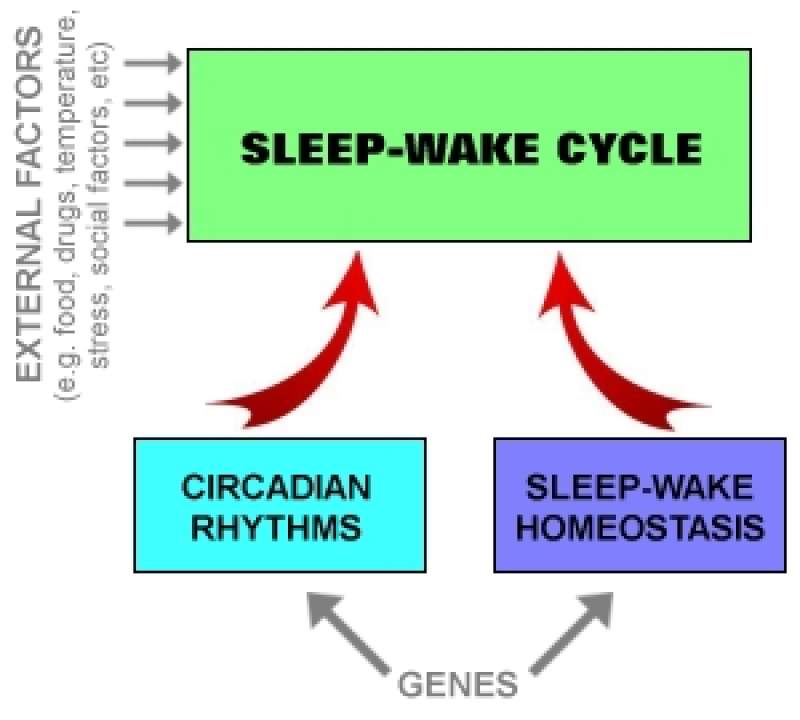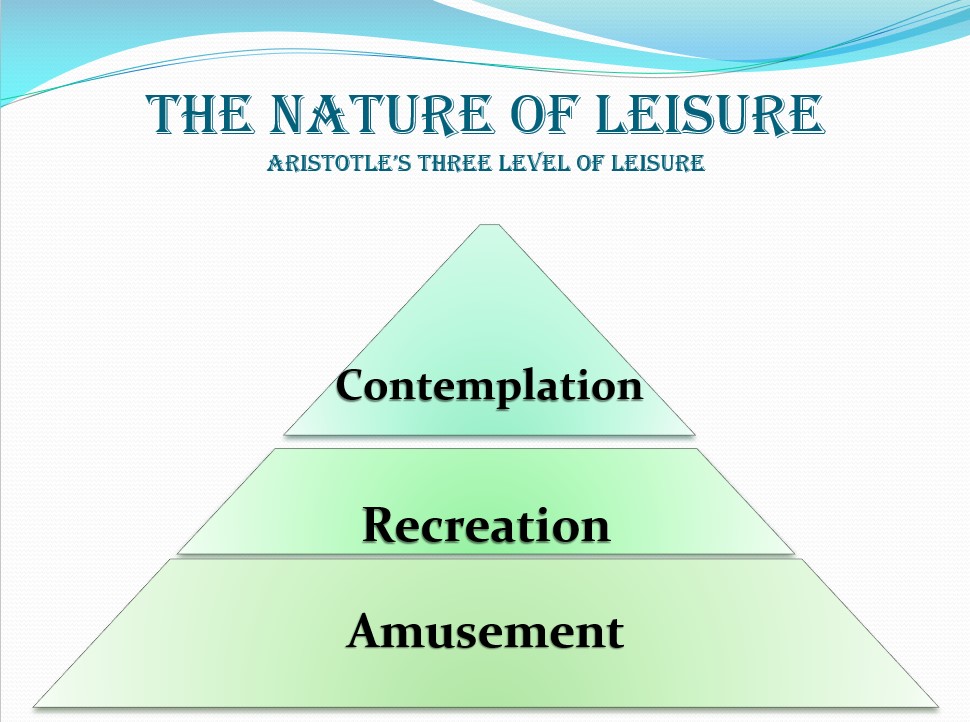Unit 8 Strategies for Wellbeing Continued

Overview
This unit contains two critical strategies for impacting wellbeing. The first topic will be from the physical domain, sleep, we will address why we sleep, the impact on our physical and cognitive performance as well as the impact on our general wellbeing. The second topic is play or leisure time. Playing is an important way to fuel our imagination, creativity, problem-solving abilities, de-stress and create meaningful relationships. This unit will prepare you for the next assignment in this course which is the Leisure/sleep tracker assignment, where you will record and analyze your time usage for one entire week.
This unit is divided into the following topics:
- Sleep and Wellbeing
- Leisure and Wellbeing
Learning Outcomes
- Explore leisure activities that enhance your well being
- Assess your own sleep patterns for overall performance
- Develop a 4 week Flourishing Proposal
Activity Checklist
Learning Activities
- Read through the Sleep power point slides (30 to 40 mins)
- Exercise Watch the video “Why We Sleep” by Russel Foster and complete quiz (21 mins)
- Watch video of “What is Leisure”(16 mins)
- Leisure categories exercise (15mins)
- Learning Lab: brief discussion on sleep and leisure patterns. Then explaining the Sleep and Leisure tracker assignment. Also a check in to how your 4 week behavior change program is going.
Assessment
- College Sleep Questioniare
- Flourishing Proposal
8.1 Sleep
Activity: Sleep and Wellbeing
Read through the slides below.

Figure 8.1. Source: mattressadvisor.com
Figure 8.2. Source: nature.com
Activity: Quiz on Russell Foster’s video
This video covers the systems responsible for sleep, the effects of sleep deprivation for emerging adults and strategies to improve sleep patterns. Watch the video by Russell Foster then take the quiz found at the bottom of this page.
Watch: Why do we sleep? | Russell Foster
8.2 Leisure
Activity: Leisure Video
What to use your time for when you have no external forces dictating what to do, this is what we call leisure time. Research is showing we have more leisure time than any previous generation. This leisure time or play time is an important building block of our architecture of wellbeing. As mentioned earlier playing is an important way to fuel our imagination, creativity, problem-solving abilities, de-stress and create meaningful relationships however somewhere between being a child and becoming an adult we often devalue play. Anthropology has revealed that play is a uniquely human experience that is found in every culture and society around the world.
This video (16 mins) is a survey of the literature and research around leisure. It also walks you through the leisure analysis component of the sleep and leisure tracker assignment (Learning Lab assignment)
Questions to Consider
- What do you play at?
- Are planning for a salaried career or punching a work clock? This has implications for amount of leisure.
- What do you do for “Me” time?
- What recreation do you like to do with others?

Figure 8.3. Source: slideshare.net
Activity: Leisure Categories Exercise
This exercise is explained in the Leisure Tracker Categories video - 16 mins (See Below). This review and integration assignment is similar to the Leisure/Sleep tracker assignment, that is due next week (details for the Leisure/Sleep tracker assignment are listed in the next section of this unit).
In the review and integration assignment create a word document where you will Identify and process your three top recreational activities into the following five categories and corresponding 3 subcategories, then upload this to the dropbox at the bottom of this page.
- Social
- Individual: time spent alone
- Intimate: time spent with one other person
- Social: time spent with a group of people
- Individual: time spent alone
- Environment
- Digital environment: time spent with some digital information as the primary attentional focus e.g. watching TV
- Non-digital environment: no digital information was the primary focus during this activity, e.g. face to face conversations
- Natural environment - time spent in an environment or landscape that had very limited human intervention e.g. Hiking
- Digital environment: time spent with some digital information as the primary attentional focus e.g. watching TV
- Energy
- Passive: time spent with very little physical effort e.g. looking at social media
- Minimally Active: physically active but at a relatively low intensity, e.g. shopping
- Very Active: Large, whole body movements at a high intensity, e.g. playing soccer
- Passive: time spent with very little physical effort e.g. looking at social media
- Engagement
- Inattentive: not requiring significant cognitive focus, e.g. listening to music
- Attentive: requires significant cognitive focus, e.g. memorizing information
- Flow: creative time spent building, moving, innovating or altering something to make an original work e.g. painting or playing video games (unaware of time)
- Inattentive: not requiring significant cognitive focus, e.g. listening to music
- Purpose
- Hedonic: time spent in activities that are primarily pleasurable, e.g. watching a movie
- Mastery: time spent on accomplishing a task that has a personal long term benefit to you e.g. running a marathon
- Existential: activities that provide a sense of ultimate purpose or meaning e.g. volunteering, religious rituals, career advancement
- Hedonic: time spent in activities that are primarily pleasurable, e.g. watching a movie
Leisure Tracker Categories video
Watch: Leisure Tracker Categories
Learning Lab: Sleep and Leisure
The assignment is comprised of three components:
A. Time tracking for 24 hours/day for seven days (more details below) with a focus in two main areas: leisure time and sleep.
B. Calculating your daily and weekly totals using either the fillable spreadsheet tracking option or the sheets provided below.
Note: if the daily logs are completed properly in the spreadsheet, the weekly report auto-fills in the final WEEKLY TOTALS tab for your convenience.
C. Personal reflection paper (3 pgs)
See the Assignment Explaination and Word Template doc for details.
Choose one of the two options for tracking and calculating totals from below.
Option 1
Watch the video below to complete the tracking assignment in a Word document.
This video explains the spread sheet option of tracking time in a Word doc
Watch: Sleep/Leisure Tracker Assignment
Downloads:
Option 2
Watch the two videos below to complete the tracking assignment in an Excel spreadsheet.
This video explains the sleep tracking assignment in an Excel spreadsheet
Watch: Sleep LEISURE Explainer
This video explains the leisure tracking in an Excel spreadsheet
Watch: Sleep LEISURE Explainer 2
Downloads:
- Excel: Tracker Template
- Excel: Tracker Sample
Unit Summary
In this unit you have had the opportunity to learn about:
- The powerful role sleep plays in both our physical and mental wellbeing. Also what would be your ideal sleep patterns.
- The part leisure can play in your architecture of flourishing and how managing your free time can significantly improve your sense of wellbeing.
Assessments
- College Sleep Questionnaire
- Flourishing Proposal
Review and Integration 8: College Sleep Questionnaire
After completing the Sleep presentation and Richard Foster’s Ted talk “Why we Sleep” complete the following College Sleep Questionnaire. Save the attached Word document: College Sleep Questionnaire. Then open it and underline the answer that best describes your sleep behaviour. Save the completed version and upload it to the dropbox at the bottom of this page. The questionnaire is partly related to the Sleep Presentation ppts.
Download:
Flourishing Proposal
This assignment is a process in formally building your architecture of wellbeing. It is designed around Kolbs model of experiential learning with it’s four stage cycle; Experience, reflection, Conceptualization and Active experimentation. We are going to start at the conceptualization stage which is were we plan for the active experimentation. In that plan we want to choose a behavior to change and build a plan to make this behavior change. This assignment will have you create a plan to change one behavior for the next four weeks (See the drop box with the assignment document). The assignment has you apply the science of behavior change to a specific pattern of behavior you wish to change, then summarize some research that supports the value of this specific behavior and finally develop a log sheet that can track the behaviour over the next four weeks. This assignment will then scaffold into the final portfolio where you will again submit the plan with the four weeks of completed log sheets and evaluate the plans success.
Check your Learning
Before you move on to the next unit, you may want to check to make sure that you are able to:
In this unit we have discussed two fundamental life patterns that significantly impact our lived experience of wellbeing. Often we don’t consider sleep and leisure when we pursue the question of what makes us happy, however both of these strategies can powerfully effect our positive mood state. These basic life behaviors need to be cultivated into patterns or rituals of wellbeing. In each of these life behaviors you should be aware of what specific strategies work for you and help you reach your goals in your current environment.
Before you move on, don’t forget to:
- Submit R&I 8: College Sleep Questionaire
- Submit Flourishing Proposal